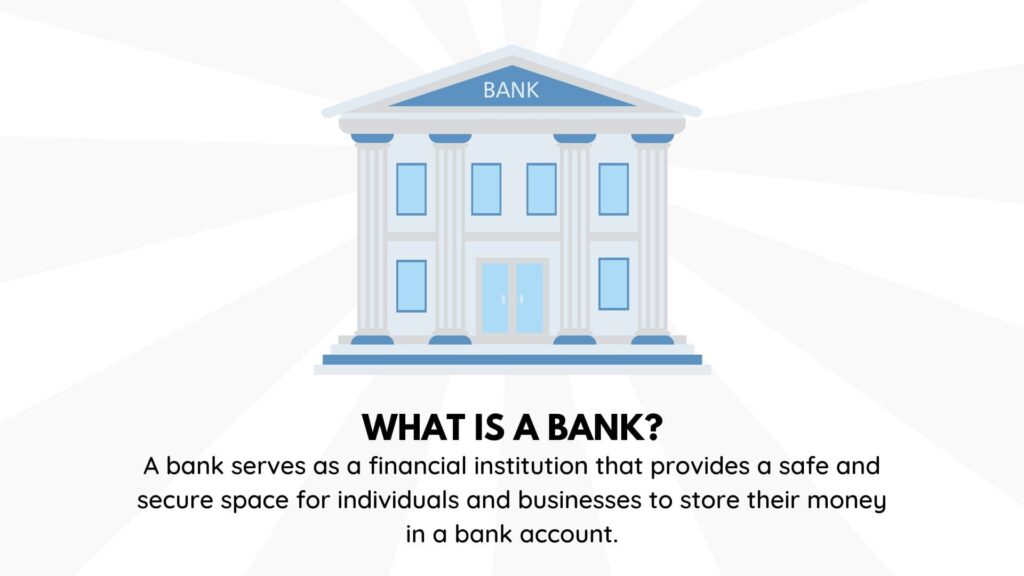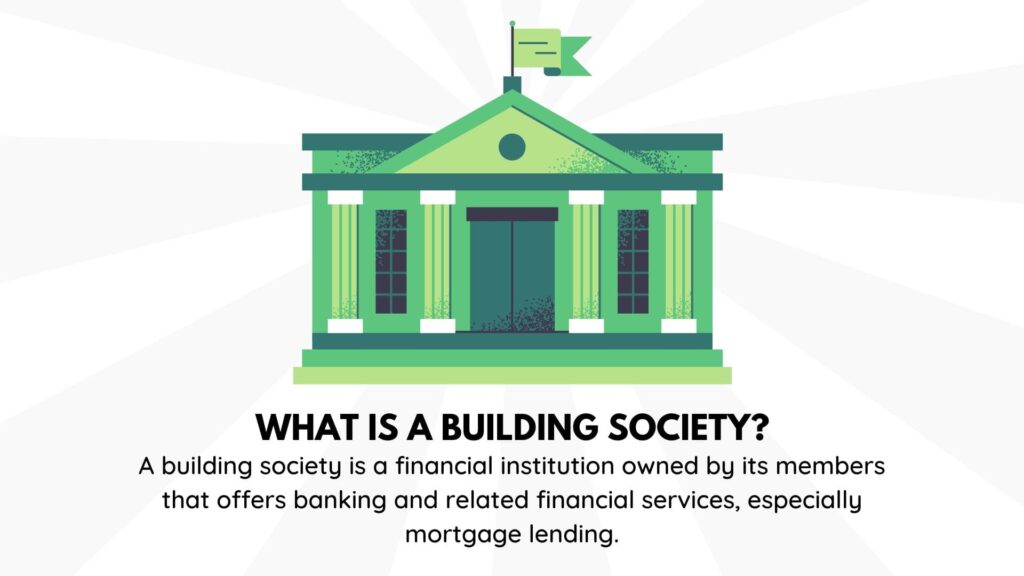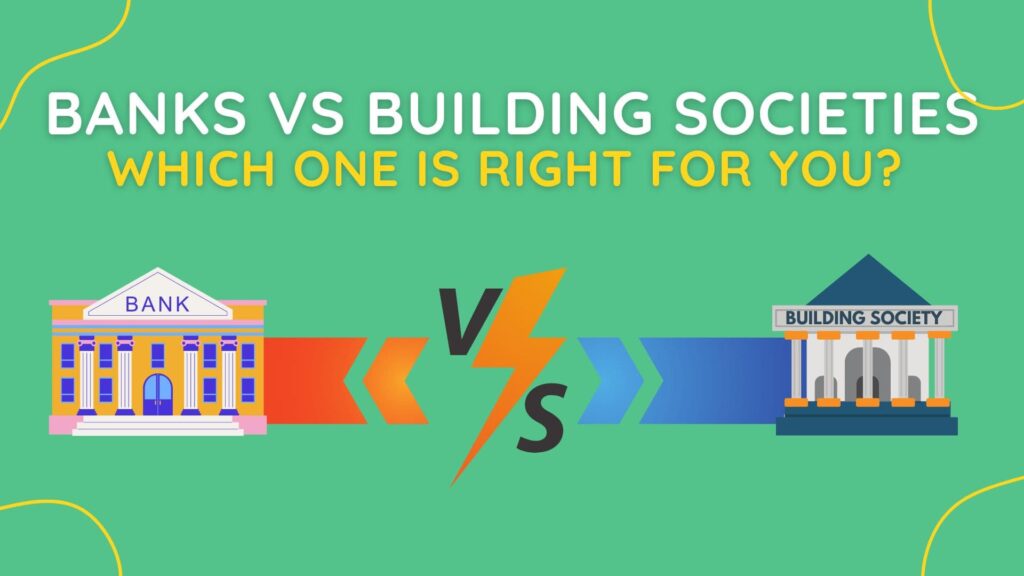
Sammie Ellard-King
I’m Sammie, a money expert and business owner passionate about helping you take control of your wallet. My mission with Up the Gains is to create a safe space to help improve your finances, cut your costs and make you feel good while doing it.

Quickfire Roundup:
Both banks and building societies provide fantastic investment opportunities, and many people think they’re the same thing.
Well, they’re not – and understanding the differences is vital for making the best investment decision.
Banks are owned by shareholders, with a focus on prioritising profits. Building societies are owned by members and look to benefit those members.
When considering which one is right for you, look at what you’ll gain long-term and the types of investment opportunities available.
“Banks vs building societies?” is an age-old question for new investors. Both are trusted financial institutions, but how do you know which is right for your money?
I’m going to take a look at the difference between a bank and a building society, their pros and cons, and which one might be best for you.
Table of Contents
What's the difference: banks vs building societies?
Many people think that a bank and building society are the same, but there are some significant differences:
Banks have external shareholders.
Banks tend to give you more flexibility.
Banks offer financial products.
Banks generally get modern technology quicker.
Building societies have members.
Building societies tend to have better interest rates.
Both banks and building societies are financial institutions but are evidently not the same. Let’s look a little closer at these distinctions.
What is a bank?

Both commercial and traditional banks offer a range of deposit accounts. These allow customers to earn interest on their funds while enjoying the peace of mind that comes with knowing their money is protected.
Banks also lend money in the form of credit; enabling customers to invest in their future.
Shareholders typically own a small portion of the bank. They have a vested interest in the institution’s success because they receive a portion of the bank’s profits, called dividends.
Banks are fast moving from traditional brick-and-mortar to digital institutions, making banking that much easier.
What is a building society?

Building societies also look after your money and provide loans. However, where they differ from banks is that building societies don’t have shareholders. They are also not listed on the stock exchange.
Rather than shareholders, building societies have members. They are consumers who have savings accounts or mortgages through the building society.
As a group, they are usually known as mutual societies. Members have a say in how the organization runs and share the profits generated from building societies as a whole. Building societies are regulated by the Building Societies Association.
There are multiple financial offers from building societies including:
- Insurance
- Building society account
- Lending money
- Mortgages
When a member opens a savings account they get returns in the form of interest rates or lower rates on mortgages and loans.
To sum it up, building societies are owned by members and focus on giving benefits by promoting homeownership and savings. All the profits are shared among building society members rather than external shareholders.
Bank pros & cons
Let’s have a look at the pros and cons of investing your money with a bank, starting with the cons:
Customer service: Banks can’t offer the same kind of customer service as building societies. They run like any business where profitability comes first. Banks are also much larger, so it’s easy to get lost in the crowd. Don’t expect a personalised service!
Lower returns: Investing money with a bank generally gives you low returns. This is particularly true for individual savings accounts.
Risk of inflation: Certain bank investments don’t keep up with inflation rates, so their value can decrease in real time.
Fees: Bank fees can be extremely high, particularly with fees for managing your funds. Something to think about when investing or looking into some financial products.
Now let’s look at the advantages:
Safety: Banks are an extremely safe investment – massive financial institutions that have been around for hundreds of years. You can be sure your money is safe and covered by insurance.
Low risk: Bank investments are generally considered low risk. Most are covered by insurance and monitored by professionals; so while the returns might be lower, so is the risk.
Convenient: Becoming a bank customer and opening current accounts is super easy. There is also a massive range of accounts and investment options that other institutions can’t offer.
Expert advice: Banks hire the best of the best when it comes to investment advice, so bank customers have access to that insight. When you go to an established financial institution, you’ll have guidance on a range of issues, such as when your ISA allowance will reset.

Building Society pros & cons
Now, onto the pros and cons of building societies. Let’s start with the disadvantages:
Inflexible: Building society accounts usually have penalties for early withdrawal, making it more difficult to access your money in the short term.
Limited investment opportunities: Building societies generally have a limited range of investment options.
Limited geographical area: Some building societies are limited by geographical location, meaning you might not be able to access your investment unless you live in a specific area.
But it’s not all bad – there are some serious advantages to investing in a building society:
Higher interest rates: Building societies generally offer higher interest rates on savings accounts when compared with a bank.
Mutual ownership: Building societies are owned and run by their members. This means they can vote on important issues and receive a portion of the profits. It’s more of a community than a bank.
Safety: Building societies are generally very safe for investing money. Like the bank, they are also regulated by financial authorities with deposit protection schemes.
No dividends: Building societies don’t need to pay dividends like commercial banks.
Bank or building society - which one is right for your money?
Let’s cut to the chase: there’s no way to say for sure whether a bank or building society is right for you. It’s all based on your personal preference.
Now you know the advantages and disadvantages of each, use this new-found knowledge as a guide.
What I can tell you, is that if you’re looking to invest money in the global stock market, investing with a bank is a better option. They have lower interest rates for savings accounts, but offer many more investment opportunities.
A building society is a good option if you want to form part of a society and have a say in how things are run. It’s great for homeowners and those that want a healthy long-term investment opportunity in their country of residence.
Are you looking for information on ISA and savings accounts? I’ve got you covered.
FAQs
Why choose a building society over a bank?
Choosing a building society over a bank can have several advantages, depending on individual needs and circumstances. Here are a few reasons:
Member Ownership: Building societies are owned by their members (customers who have a mortgage or savings account with them), not shareholders. This means they often focus more on customer service, satisfaction, and providing value to their members rather than maximising profits for shareholders.
Competitive Rates: Because they are not driven by shareholder profits, building societies often offer competitive interest rates on savings and mortgages.
Local Focus: Many building societies have a strong local focus and contribute to local communities. They may have more knowledge of the local property market, which can be beneficial when applying for a mortgage.
More Lenient Lending Criteria: Building societies may have more flexible lending criteria than banks, making it easier for people with non-standard circumstances to get a mortgage.
Profits Reinvested: Profits made by building societies are often reinvested back into the business to improve products and services for members.
Remember that while these are potential advantages, they may not apply in all cases, and the choice between a bank and a building society will depend on individual circumstances and needs.
Is a building society safer than a bank?
No. This myth has led to many people making the wrong investment decisions for their circumstances. Both banks and building societies are overseen by regulatory bodies.
What are the most popular building societies in the UK?
A few of the top building societies in the UK include the Principality Building Society, Yorkshire Building Society, Nationwide Building Society, and Newcastle Building Society.
Conclusion
Deciding where to invest your money is a big decision and not one to take lightly. Looking at the bank vs building society debate, it’s obvious that both have pros and cons you should consider before making your decision.
I hope my guide has helped show you the difference between a bank and building society and equally helped you make the right decision for your money.
Share on social media
Disclaimer: Content on this page is for informational purposes and does not constitute financial advice. Always do your own research before making a financially related decision.


